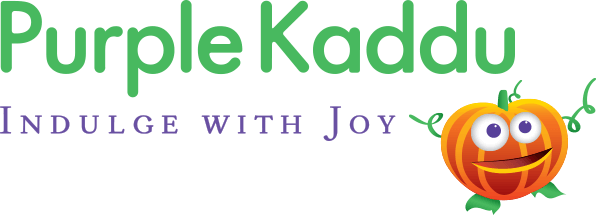
Pregnancy Diet plan - A Trimester By Trimester Guide

All nutrients are important during the entire period of pregnancy. But as the weeks pass by, and the foetus grows into a baby, nutrients requirement at each stage changes. Thus, we run you through the vital nutrients along with their food sources, as per changes in the womb.
1st Trimester(0-12 weeks)
At 0-4 weeks:
- Your baby's brain and spinal cord have begun to form.
- The heart begins to form.
- Arm and leg buds appear.
Important nutrient for these developments: Folic acid & Omega 3
Folic Acid
Folic Acid is crucial for cell division, growth of every cell in baby’s body and formation of neural tube. You need to have enough folic acid in your body before and during pregnancy to prevent major birth abnormalities of brain and spinal cord such as spina bifida and anencephaly.
Food Sources:
- Green leafy vegetables,
- Pulses (chhole,rajma,chawli),
- Bajra.
Omega-3
Omega-3 is required for brain development.
Food Sources:
- Flaxseeds,
- Chia seeds, or
- Consume cooked fish twice/week. Fish (shark, swordfish, mackerel, tilefish) contains mercury which is toxic for the baby, hence avoid these.
At 8-12 weeks:
- All major organs and external body structures have begun to form.
- Your baby's heart beats with a regular rhythm & red blood cells are forming.
- The limb buds start to form cartilage, which will develop into the bones of the legs and arms.
Important nutrient for these developments - Iron, Zinc & B-complex, Calcium
Iron
Iron is an important part of haemoglobin, the substance in blood that carries oxygen throughout the body. Consuming more iron while you are pregnant ensures that you and your baby are getting enough oxygen.
Food Sources:
- Cooked red meat is one of the best sources of Heme iron for pregnant women.
- Vegetarian sources include green leafy vegetables and pulses. For better absorption of iron combine the veg sources with Vitamin C rich foods like Oranges, lemon and Amla.
Zinc
Zinc is required for the production, repair and functioning of DNA.
Food Sources:
- Chickpea,
- Bajra,
- Varai,
- Tur Dal,
- Cashewnuts,
- Sesame seeds
B-complex
B-complex helps the body convert food into energy and contribute to the creation of red blood cells.
Food Sources:
- Whole grains,
- Sesame seeds,
- Groundnut,
- Milk,
- Egg,
- Green leafy vegetables
Calcium
Calcium builds strong bones, to grow a healthy heart, nerves, muscles and to develop a normal heart rhythm and blood-clotting abilities.
Food Sources:
- Dairy products,
- Beans,
- Green leafy vegetables,
- Cooked Small fishes,
- Ragi,
- Rajgira,
- Sesame seeds.
2nd trimester (13-28 weeks)
At 13 - 20 weeks:
- Muscle tissue and bone continue to form, creating a more complete skeleton.
- Skin begins to form.
- Baby’s GI system has also started its function.
- Eyebrows, eyelashes, fingernails, and toenails have formed.
- Baby’s eyes are starting to develop their functional components.
These developments requires - Protein, Vitamin A, Vitamin D & Copper
Protein
Proteins act as building blocks of your and baby's body.
Food Sources:
- Lean meat,
- Fish,
- Egg,
- Dairy,
- Pulses,
- Nuts and Seeds.
Vitamin A
Vitamin A is important for development of normal vision, skin and to fight against infection.
Food Sources:
- Yellow to dark orange coloured fruits and vegetables,
- Dairy,
- Eggs.
Vitamin D
As explained above, calcium plays an important role. Vitamin D is critical for the absorption of calcium. Since this stage involves rapid development, Vitamin D is crucial.
Food Sources:
- Fish,
- Mushrooms,
- Eggs.
Along with Food sources, sun light is also a source of Vitamin D.
Copper
Copper helps form baby's heart, blood vessels, skeletal and nervous systems.Copper deficiency result in skin, neuronal & hair abnormalities.
Food Source:
- Sesame seeds.
At 24 - 28 weeks:
- Real hair begins to grow on your baby's head.
- Your baby stores fat and has gained quite a bit of weight.
These developments requires - B-complex vitamins & Zinc
B-complex vitamins
The B vitamins are essential for healthy hair. These vitamins play in delivering vital nutrients and oxygen to the scalp, via their contribution to the creation of red blood cells.
Zinc
Zinc is also important for Healthy hair, nail & skin development of the baby.
3rd trimester (29-40 WEEKS)
- Your baby's body begins to store vital minerals, such as iron and calcium & Magnesium.
- Lungs are not fully formed, but practice "breathing" movements occur.
These developments requires- Vitamin A, Selenium, Iron & Calcium
Vitamin A
Vitamin A is also particularly essential for women who are about to give birth, because it helps with postpartum tissue repair.
Selenium
Selenium a mineral and antioxidant fights against free radicals and is associated with healthy lung capacity.
Food Sources:
- Ragi,
- Bajra,
- Moong,
- Peas,
- Brussel sprouts,
- Cauliflower,
- Jackfruit,
- Watermelon.
Iron & Calcium
The requirement for Calcium & iron increases as baby begins to store minerals for rapid development of the body. In the third trimester, your baby's bones grow and become stronger. Your blood volume increases by 50 percent during pregnancy, with the increased blood volume comes the need for extra iron, which is carried in red blood cells.
Keep these focus nutrients in mind while planning pregnancy diet and rest assured of a healthy growing baby.










